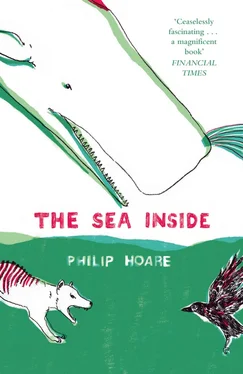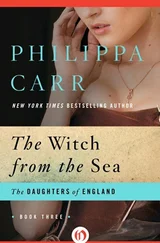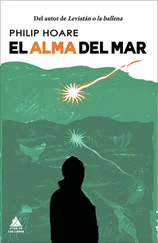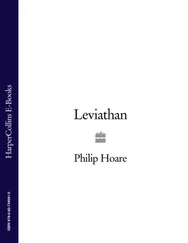None of this makes much sense – the report, in the Galveston Daily News of Texas, confuses more than it reveals – but the fact that it appeared in a newspaper gave credence to the story. With rumours of impostors turning up in Cotswold villages, only to disappear again, there were even hints of conspiracy: ‘It seems clear that someone is interested in the matter aside from the Nind heirs …’ Indeed, this family intrigue, with its echoes of a novel by Conrad or Dickens, would be strangely replayed in the next generation.
James’s nephew, also named James – my great-great-grandfather – was born one of nine children, to Isaac Nind, a gentleman farmer in Tredington, in 1824. As the eldest surviving son, he stood to inherit substantial property: his father owned two hundred acres and employed four labourers, as well as six domestic servants. Yet in 1850, aged twenty-five, this fair-haired, handsome young man followed in his uncle’s wake and left England. In his case, he definitely sailed to America, apparently drawn there by the promise of a better life.
But James had another reason to leave home. That summer, Sophia Clarke, a twenty-one-year-old woman from the neighbouring village of Gotherington, gave birth to their illegitimate daughter Rosa. The records claim, somewhat mysteriously, that Rosa was born at sea. Had Sophia travelled to America with James, and decided to return? When asked about her grandfather, my grandmother would only say, ‘There was a young man who was sent to America to make a fresh start.’
Although James already had family living in the United States – his aunts Dorcas and Judith had emigrated there some years before – it must have been an extraordinary contrast, to leave the lush confines of the Cotswolds for the vast and still largely unexplored continent. That may be why he settled in Lowville, in the foothills of the Adirondacks, New York State, a reminder of home: good farming country, like its neighbouring state, Massachusetts, where, in the year that James arrived, Melville was writing Moby-Dick . By 1859, when he was visited by his sister Mary Ann and her husband John Freeman, James was married with twin boys. But that year he announced his intention to go west to the goldfields of California, lured by reports such as one in a Buffalo newspaper which claimed that prospectors could turn fifty dollars into five thousand within twelve months. Mary Ann, initially keen to join him, decided not to go as she was about to give birth.
She had a lucky escape. James and his family were last heard of in Davenport, Iowa, from where they joined the wagon trail. From the 1840s to the 1860s, four hundred thousand travelled west, an unprecedented exodus of people from all around the world to the remote Pacific coast: Mormons, miners, farmers and families in search of fortunes or religious freedom or any kind of new life. The journey would take half a year and was fraught with danger. Wagons were towed by oxen across plains as yet unclaimed from Native Americans, through the desolate landscapes of the Great Salt Desert and over the mountain range where the Donner Party had resorted to cannibalism in their despair. This mass migration had its own power to alter the environment, not least in the hunting of bison, about to be driven to the verge of extinction.
Did James and his family make it as far as the Great Plains, travelling by prairie schooner, sailing through endless seas of grass? I once visited those same fields, without knowing that my ancestor might have passed that way. It was as far from the ocean as I’ve ever been, and I remember swimming in an open-air public pool on the outskirts of Red Cloud, Nebraska. It looked like a little piece of the sky fallen to earth. All I do know is that James wrote a letter to his sister, Mary Ann, sent back east, although it survives only in her report. ‘A wagon train can pass through the grassland seas,’ she wrote, ‘they had circled their wagons to camp and put the boys under the wagon.’ There, in an extraordinary, unbelievable stroke of bad luck, the boys were both bitten by a snake, and died. James also reported that his wife was ill. And that was all; except for his last words, left hanging in the air: ‘I don’t know.’
James never reached his destination. Perhaps he and his wife succumbed to disease. Cholera was rife among the migrants, ‘the destroyer … let loose upon our camp’, as one settler wrote. Or perhaps, as family tradition suggests, he was killed by Indians. It is not an entirely fanciful notion: such attacks were the second most common cause of death for the travellers moving in great numbers through Native American territories. James’s sandy hair would have made a fine scalp.
I can’t quite believe myself descended from these romantic ancestors, or imagine what they experienced, or inflicted. Their stories are beyond the reach of the brown-grey ghosts of the family album. They happened before the casual snaps in trellised gardens and on seaside promenades, and they suggest more than they tell. James’s sister Mary Ann, and their brother William, who followed them to America, would lead quieter lives, settling in small towns on the shores of Lake Erie, south of Buffalo and Niagara Falls. Yet for them too, leaving England was an adventure: Mary Ann would recall that on the voyage out from Liverpool, the ship on which she was sailing passed another vessel on fire, but their captain did not stop, although the law of the sea demanded that they should.
Back in Gloucestershire, Sophia went on to marry twice, each time to men from her own parish. A single image of her survives: a tintype photograph, corrupted with age, showing her in a patterned dress. Her face is strong, her cheekbones high, her stance determined. She looks like my mother, who had the same Titian red hair; it is not hard to read in her eyes what she had lived through. Sophia brought up her daughter, assisted by the Ninds, who acknowledged her as one of their own. In her teens, Rosa became a nursemaid to a naval family in Plymouth, before marrying and having her own family, among them my grandmother. She looks quite proper in her crinoline. But in every census record in which she appears, until her death in 1920, one year before my mother was born, she continued to state that she was born at sea, as if to obscure the shame of her illegitimacy.
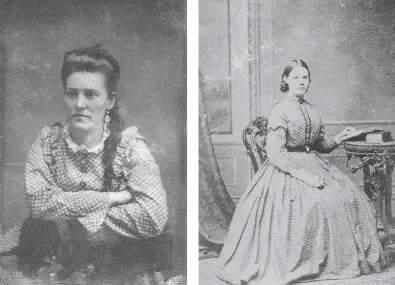
My father’s family also crossed the sea; like my maternal ancestors, they too were caught up in an age of mass migration. My great-grandfather Patrick, named after the saint who had converted Ireland and driven the snakes from its shores, was born in Blanchardstown, a village outside Dublin, in 1856. The island was still suffering the after-effects of the Great Famine, a good enough reason for his departure for Liverpool sometime in the 1870s. Settling in Lichfield, he married an English girl, a servant in the same household in which he worked as a coachman. The pair then moved to the former whaling port of Whitby, where my grandfather was born in 1885, on a street at the end of which, in the previous century, James Cook’s Endeavour had been built.
His eldest son, my father, a dark-haired, good-looking young man, left the depressed streets of the north for a new life in Southampton in the 1930s. He had been born in the model mill town of Saltaire in 1915, but was brought up in Bradford. His journey south was the equivalent of the Ninds’ voyages, the result of greater events, of disaster and opportunity. Later he’d speak of the deprivation he had witnessed in his home town, of starving families fighting over food, of rats running down the street, and of a man found hanging in an outhouse on nearby wasteland.
Читать дальше
